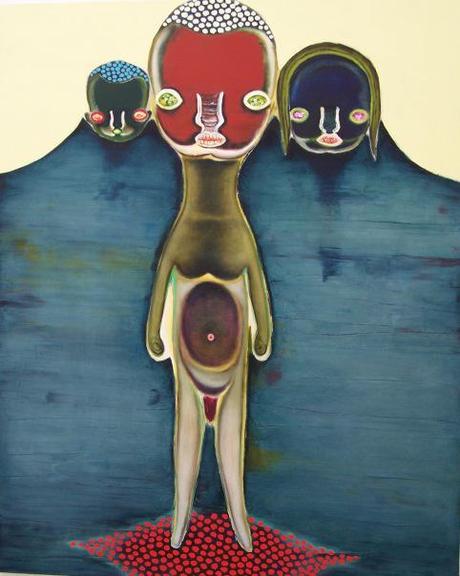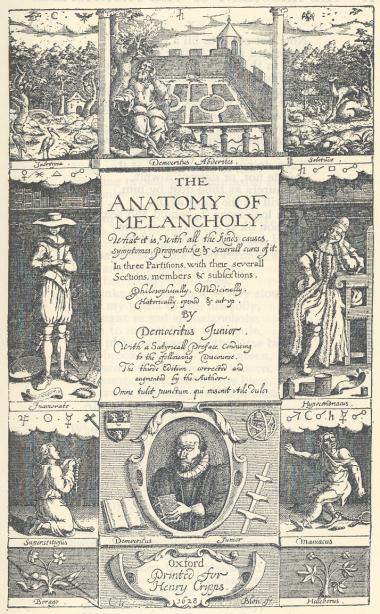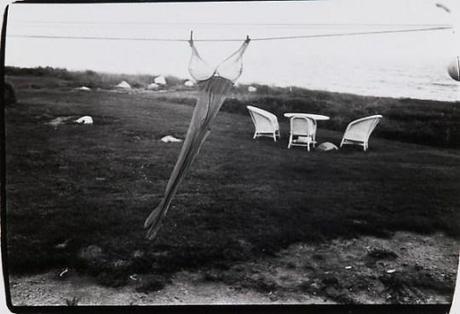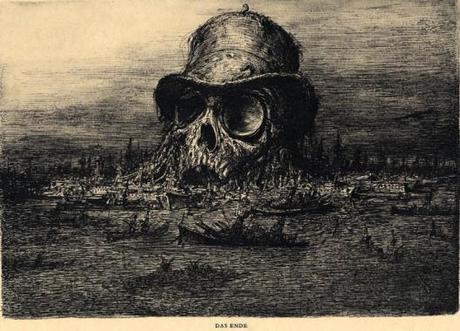
(Photograph of the author, Venice Biennale 2007)
This pattern of Balotelli’s excesses is by now so frequent and familiar that it constitutes a mannerism. Like in the sequence of a Quentin Tarantino movie, things can plunge in a few seconds into the most grievous, bloody calamity or be rounded off and dispatched with softness; in both cases, the resolution remains atmospheric, perfectly illustrative of a kind of movie-making that sees itself as a prognosis of melancholy. In the brief space of Balotelli’s career, the exception becomes the rule, and particular effects of madness, which used to be limited to a small group in special circumstances (like in a theater), are extended to everyone. Mario’s talent is in the grip of a calamitous, tyrannizing disease, like one of the self-cannibalizing sentences one encounters so often in Robert Burton’s treatise, The Anatomy of Melancholy:
Seldom this malady procures death, except (which is the greatest most grievous calamity, and the misery of all miseries) they make away themselves, which is a frequent thing and familiar amongst them.
Many lamentable examples, and the well-known doctrinal objections to suicide, would seem to suggest that Balotelli is not moving in the direction of a sacrifice. Yet, it is not because of a final consolation that things about him are simultaneously promising and troubling. Everything unfolds as if in a parenthesis. Logically, Mario acts considering if the heavenly Physician would prevent. . .

But the force of the negative operates independently from the “if” clause; he will not prevent—especially since every hypothesis ends so badly. Even so, when was the last time that a soccer player had been hailed as a biblical figure: enough to keep alive our anticipation of a consoling turn, enough to summarize, in rapid succession, the vindicating enterprises of Samson, Saul, Jerome and Jonas. Our footballing Christianity will once again be held with one more turn to its screw, or, in Burton’s terms,
in the midst of these squalid, ugly, and such irksome days, they seek at last, finding no comfort, no remedy in this wretched life, to be eased of all by death. . . after many tedious days, at last, either by drowning, hanging, or some fearful end, they precipitate or make away themselves.

Reading about Balotelli’s sexual exploits is a sepulchral experience. Paul, in II Corinthians, tells us that the heart has been made fit by the very person who occupies it. That is to say, Mario’s inhospitable heart is a galaxy of dissolution that offers no natural resting place. A breast may show the way into a garden of delights; a tattoo might indicate that thy word is all, like in the stanza of a Renaissance poet. But Balotelli’s love life, often mirrored in the obstinate remonstrations of his first-person voice, is the result of a perpetual dialectic between his egocentric vision and the relentless pressure of insights that are both resolving and dissolving.

My second argument is grounded upon a Machiavellian use of tribulation and anguish; it maintains that Balotelli’s vexation of mind and constant refusal to release the potential of his talent has the curious effect of increasing our awareness of that potential. That is to say, the very fact that Mario does not fulfill our messianic expectations in some sense reinforces those expectations. We pull the sting from the pain and we wait all the more self-consciously for that moment in which our patience is about to be rewarded. Then hope fades, and the spectator is left simply with deplorable facts—and no cure. We might embrace the thesis of cosmic depravity. Or we might dismiss Balotelli’s villainy as an overwhelming case for despair, but before reaching the End, we’d still be fools, like David said, by reasons of his transgressions, withdrawing from a sphere of palingenesis to unspeakable barbarism:
Each breast does feel, no braver fuel choose / than that., which one day Worms may chance refuse? / Sure, Lord, there is enough in thee to dry / Oceans of ink; for, as the Deluge did / cover the Earth, so doth thy Majesty. ♦


